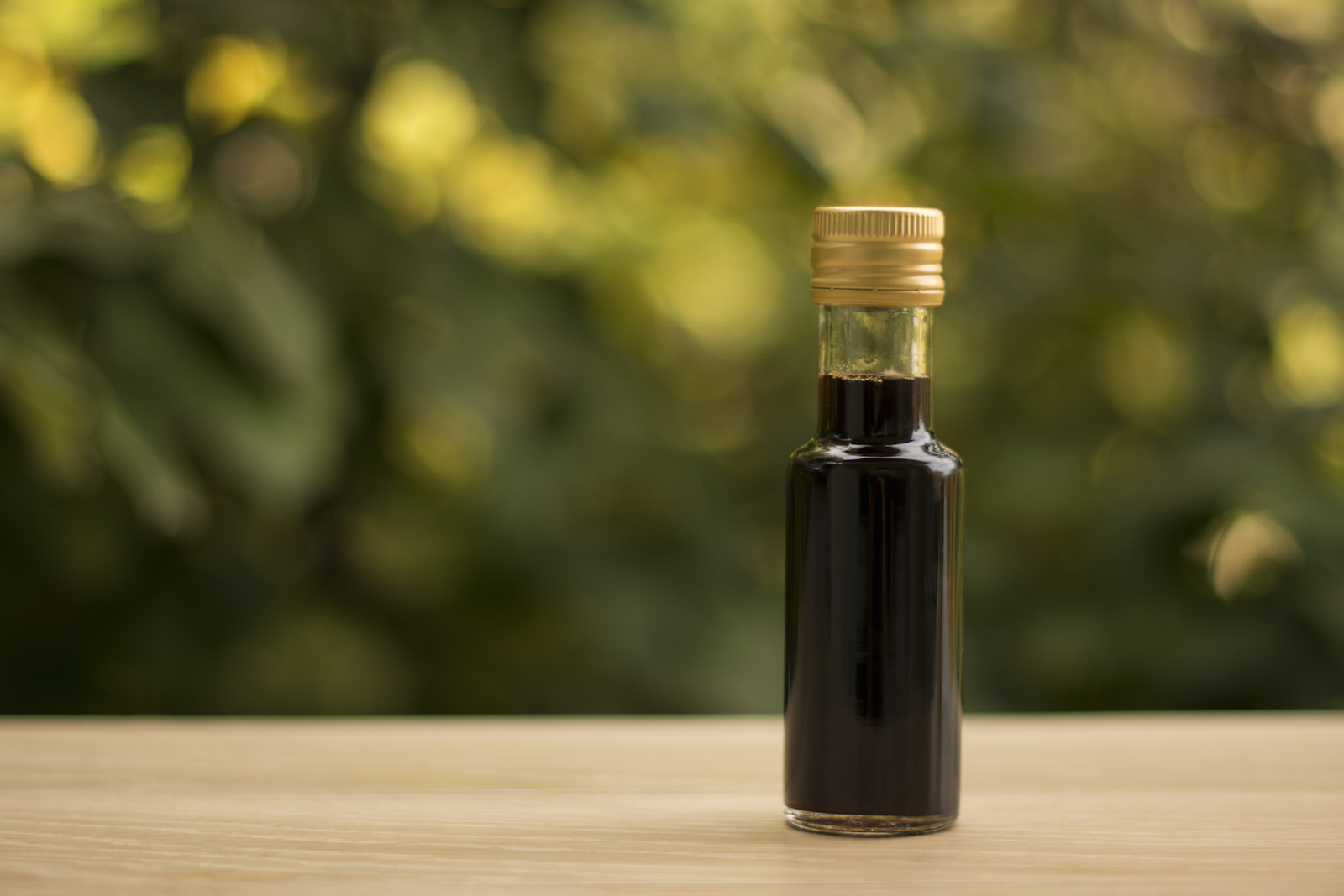Registration for The Nutritious Life Studio’s signature Become a Nutrition Coach Program is open! Register or Speak to a Program Advisor to officially jumpstart your health and wellness career.
Ask Keri: I’ve been hearing more about black vinegar. Is it healthier than apple cider vinegar?
Keri Says: Although more research is needed, both apple cider vinegar and black vinegar have potential health benefits and can be used to add flavor to a healthy diet.
Apple cider vinegar is made from apple juice, while black vinegar generally comes from unpolished black or brown rice. Here’s what you need to know.
Apple Cider Vinegar vs. Black Vinegar: Nutrition Facts
Both vinegars are fermented, which creates acetic acid. That acid is considered the “active” ingredient in vinegar, which gives it its sour taste and is likely responsible for many of the health benefits.
They also both contain polyphenols, many of which are antioxidants. Because black vinegar is fermented for a long period of time, it may contain higher amounts of polyphenols, amino acids, and trace minerals, but whether or not that difference is significant is hard to say.
RELATED: 12 Simple Recipes for Antioxidant-Packed Meals
Also important: Both vinegars contain zero calories and don’t have any negative nutrition qualities (like, say, lots of sugar), so there’s no reason to avoid them.

Apple Cider Vinegar vs. Black Vinegar: Health Benefits
When it comes to health benefits, most of the available research is on whether either vinegar can contribute to weight loss.
For apple cider vinegar, many studies have looked at how drinking it affects blood glucose levels in people affected by diabetes. For instance, a 2007 study showed that individuals with type 2 diabetes who drank two tablespoons before bed woke up in the morning with blood sugar levels that were six percent lower. A 2009 study showed people who drank two teaspoons before or during a meal had lower blood glucose levels after the meal, but only when the meal consisted of complex carbohydrates (the starchy kind of carbs found in vegetables, whole grains, potatoes, and beans, as opposed to simple carbs, which are basically just sugar, like refined table sugar and corn syrup). And a 2013 study found a tablespoon of apple cider vinegar before meals lowered blood glucose levels in adults at risk for type 2 diabetes. So, the studies suggest vinegar plays a role in the breaking down of carbohydrates, particularly starches. Over time, that could contribute to weight loss, but there are many other factors that would affect whether or not that happens.
RELATED: 8 Important Factors That Affect Weight Loss
For black vinegar, a few studies suggest it may affect the size of fat cells and absorption of fat. In one animal study done in Japan, fat cells shrunk in mice fed black vinegar. In a follow-up human study, subjects who drank black vinegar daily had lower body weight, BMI, visceral fat, and serum triglyceride levels compared to subjects who didn’t. However, these are two small, limited studies, so much more research is needed to determine what the effect might be long-term, outside of a lab.
Many websites make claims about both vinegars having other health benefits like lowering the risk of heart disease and preventing cancer. There isn’t enough research to show a direct correlation on those fronts, but we do know that they contain antioxidants, and diets high in antioxidants are linked to better heart health and lower risk of cancer overall.
The Bottom Line
Vinegar is good for you—period! The way I look at two ingredients like this is the same way I’d look at two green veggies. They are both great and should both be incorporated into your diet and used for different things. (Diversity is one of the hallmarks of a healthy diet, after all.) Apple cider vinegar is better for salad dressings, for example, and black vinegar is great mixed with soy sauce or as part of a marinade for a meat dish.
As I mentioned before, they contain no calories, so adding vinegar to your daily routine is certainly not going to hurt, and you can use either one as a substitute for salt to add flavor to meals.
(Photos: Shutterstock)





























